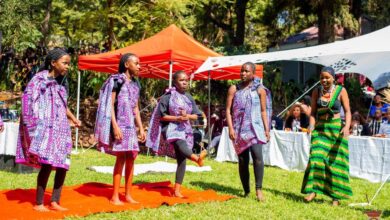5 Zimbabwean Sustainable Practices to Adopt

Zimbabwe, with its rich cultural heritage and natural resources, is increasingly embracing sustainability to address environmental challenges and promote a greener future. Here are five sustainable practices from Zimbabwe that can inspire others to adopt eco-friendly habits:
- Traditional Agroecology
In Zimbabwe, traditional agroecology practices are gaining renewed attention for their environmental benefits. Farmers are turning to indigenous methods such as crop rotation, intercropping, and the use of organic fertilizers. These practices enhance soil fertility, reduce the need for synthetic chemicals, and support biodiversity. By integrating traditional knowledge with modern techniques, Zimbabwean farmers are creating resilient and sustainable agricultural systems.
- Recycling and Upcycling Initiatives
Recycling and upcycling have become essential practices in Zimbabwe as communities seek to manage waste more effectively. Initiatives such as the Zimbabwe Environmental Law Association’s waste management programs focus on sorting and recycling materials like plastics, glass, and paper. Upcycling projects, where waste materials are transformed into new, useful products, are also gaining traction. These efforts help reduce landfill waste and promote a circular economy.
- Solar Energy Solutions
With abundant sunlight, Zimbabwe is harnessing solar energy as a sustainable alternative to traditional power sources. Solar energy solutions, including solar panels for homes and community solar projects, are becoming more widespread. These initiatives not only provide reliable electricity to remote areas but also reduce dependence on fossil fuels and lower greenhouse gas emissions. Solar-powered water pumps and lighting systems are also improving quality of life in rural communities.
- Conservation of Natural Resources
Zimbabwe’s conservation efforts focus on protecting its diverse ecosystems and wildlife. National parks and reserves, such as Hwange and Mana Pools, play a crucial role in conserving biodiversity. Community-based conservation programs, like the CAMPFIRE (Communal Areas Management Programme for Indigenous Resources) initiative, involve local communities in managing natural resources and wildlife. These programs aim to balance ecological preservation with socio-economic development, fostering a sustainable relationship with the environment.
- Sustainable Building Practices
In urban areas, sustainable building practices are becoming more prominent. Zimbabwean architects and builders are incorporating eco-friendly materials and energy-efficient designs in new construction projects. Techniques such as using locally sourced materials, implementing passive solar design, and incorporating rainwater harvesting systems are becoming standard. These practices help reduce the environmental impact of construction and contribute to more sustainable living spaces.
Adopting these sustainable practices from Zimbabwe can provide valuable insights and inspiration for creating a more environmentally friendly future. By embracing traditional wisdom, promoting recycling, harnessing renewable energy, conserving natural resources, and implementing green building techniques, individuals and communities can contribute to a healthier planet.




